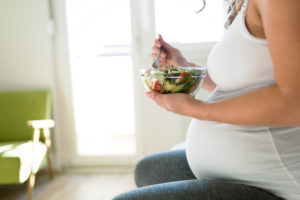
As autumn transitions into winter, birthmothers may encounter health challenges that stand in sharp contrast to the carefree cheer of the holiday season. Although pregnant and postpartum women always face some unique health concerns, the winter months can add new complicating factors that merit their attention.
Whether you have a winter due date or your recovery from childbirth coincides with that time of year, you’ll benefit from an understanding of how the season might affect your body and mind. Take a look at five common winter health risks for birthmothers, along with some useful tips for avoiding or minimizing them.
1. Seasonal Disease Outbreaks
You may already know that communicable viruses tend to spike during the winter months, partly due to the colder, drier air and partly due to people’s tendency to gather indoors for holiday celebrations or reunions. These seasonal outbreaks pose dangers to anyone, but they can create extra concerns for pregnant women.
COVID-19 continues to threaten the U.S. population. Pregnant women run a greater risk of severe illness from this virus than the general population, according to the CDC. They also have an elevated risk for pregnancy complications compared to women who haven’t contracted COVID-19. Close quarters in the winter season increase your risk of contracting the disease, so take proper precautions.
Of course, there are a few other illnesses that are most prevalent in winter. These include the common cold, influenza, pneumonia, and stomach viruses. Take care to avoid contact with those who exhibit symptoms of illness, such as nausea, fever, cough, or sore throat. Be sure to give extra attention to personal hygiene and sanitation, and see a doctor if you suspect you’ve contracted an illness.
2. Dehydration
Pregnant birthmothers need to stay hydrated since the body requires even more water intake than usual during these critical months. Unfortunately, dry air can dehydrate you rapidly, while cold temperatures don’t trigger thirst, and therefore water consumption, the way hot temperatures do.
Whether you feel thirsty or not, you should make a point of drinking 8 to 12 glasses of water a day while pregnant. The urine of a well-hydrated person should appear almost colorless. You can also get water from fruits and vegetables. Avoid caffeinated beverages since these drinks actually promote water loss.
Dry winter air and hormonal changes can conspire against your skin during pregnancy. Going from one temperature extreme to another can aggravate this dryness. Results may include flaky, itchy, irritated skin. As you boost your water consumption, apply moisturizers and avoid perfumed skin products to minimize dryness and discomfort.
3. Winter Injuries
For many active individuals, winter means winter sports. However, while exercise can support good health throughout your pregnancy, you should steer clear of certain winter sports such as skiing and sledding. A fall on the ice or impact with a tree or other stationary object could injure both you and your unborn child.
Even if you don’t indulge in winter sports, you should tread carefully during snowy, icy winter weather. Avoid walking on slick surfaces whenever possible, and let someone else perform seasonal heavy labor such as shoveling snow from your walk.
Don’t overreact to the winter temperatures by jumping into a hot tub or sauna. These environments can cause your body to overheat, which in turn may impact fetal development. As your pregnancy progresses, overheating can reduce the available blood flow to the uterus, another potential threat to the baby.
4. Dietary and Nutritional Concerns
Winter holidays typically mean indulgence in enormous meals, after-meal sweets, and other dietary misbehaviors. Pregnant birthmothers should think twice before skipping meals to save their appetites for a larger holiday meal. You can still enjoy the holidays by maintaining balanced nutrition, substituting sweets with fruits, and avoiding alcoholic beverages.
You may find it harder to maintain your nutritional balance during the winter. Shorter days that produce less sunlight reduce your body’s ability to get the vitamin D it produces through sun exposure. Consider supplementing your daily dietary intake with at least 25 micrograms of vitamin D for the duration of your pregnancy.
5. Seasonal Affective Disorder
The same gray winter skies that can deprive you of vitamin D can also leave you with an emotional challenge known as seasonal affective disorder, or SAD. While some individuals develop SAD in the spring or summer, the syndrome commonly occurs when shorter days and cloudy weather disrupt the human biological clock.
Fall and winter SAD symptoms include fatigue, sluggishness, weight gain, oversleeping, and unexplained carbohydrate cravings. You might also experience severe depression, poor mental focus, and loss of interest in your favorite activities or subjects. Individuals with depression or bipolar disorder have an elevated risk for SAD.
Medical treatment can help you safely fight the effects of SAD during or following pregnancy. Your doctor may prescribe medications to relieve biochemical imbalances. Artificial light therapy or natural sunlight exposure can also prove helpful for SAD. In some cases, birthmothers with SAD may benefit from psychotherapy.
Arizona Adoption Help can help you safeguard your health as you carry a baby or recover from pregnancy. We can provide you with the resources you need, from medical attention and secure lodgings to proper nutrition, throughout the winter months and all year round. Feel free to contact us 24 hours a day.



